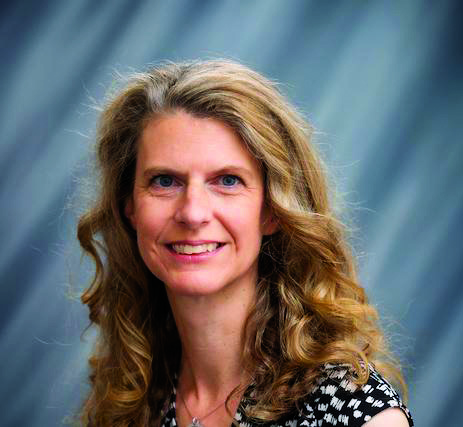During COVID-19, while others were teching-up, Professor-Cline-Brown teched down

Professor Kimberly Cline-Brown has reinvented her teaching methods as a result of the pandemic.
Apr 14, 2022
Kimberly Cline-Brown, Ph.D. has spent the last year and a half reinventing her teaching methods to better serve her students during the pandemic. From spending the summer writing a lab manual from scratch to figuring out how to do biological experiments with everyday home materials, Cline-Brown has been recognized for dedication, passion, and creativity with the Beverly Funk Barnes Educator Excellence Award. On top of many other awards, including the Liberal Arts Core Teaching Excellence Award and the Red Apple awards from students, Cline-Brown has proved to be an instructor dedicated to the needs of her students.
Raised in Canada for most of her life, it wasn’t until high school that Cline-Brown returned to the U.S. after her father was transferred to New York for his work. Laughing, she recalled the move to New York being in the middle of prom and SAT season, and not knowing what any of that was.
After graduating high school, she attended the State University of New York at Plattsburg where she earned her degree in psychology.
Cline-Brown intended to become a clinical psychologist but became interested in working in the academic field while at an awards ceremony in college. She loved the atmosphere of the room– people from all over getting together to share ideas and solve problems. It was then that she started to consider a different career path.
Along the way to earning her psychology degree, Cline-Brown took biology classes. She wanted to better understand the human body so she could not only give therapies but develop them. After finishing her undergrad, she went on to attend the University of New Mexico where she earned her Ph.D. in biology and worked to treat people with depression. During grad school Cline-Brown met her husband, and after getting married, they moved to Baltimore where she did research for pharmaceutical companies.
When Cline-Brown and her husband moved to Iowa, she discovered a job opening at UNI in the biology department. The university was searching for someone to teach non-majors and Cline-Brown was passionate about this type of work because she maintained that anyone could understand biology if it was explained in the right way. One of her long-term goals had been to present information to students in a relevant way that would help them retain it. It was important to Cline-Brown to increase her student’s confidence in their own knowledge so they could take the information they learned in college and use it to problem solve in their lives and careers.
As with many, the last two years brought challenges for Cline-Brown as she attempted to teach her lab-based classes online. She recalled how heartbreaking it was to see students return home and how she watched the sparkle leave their eyes as it became harder to engage them in discussions.
“Probably the hardest part about teaching online, or even while wearing a mask, is that students can’t see those facial expression cues that indicate you care about them.”
Instead of assigning lecture videos to her students, she searched for innovative ways to conduct lab activities with everyday house supplies. She believed that labs were meant to be done in real-life, not from behind a computer screen.
“You can look at Covid as a disaster or you can decide to make it an opportunity to learn and grow,” she said.
Cline-Brown wanted her lab classes to be hands-on, even amidst the pandemic. With help from colleagues in her department, she was able to find ways to create at-home labs. She learned how to convert a medicine syringe into a vacuum capable of sucking the carbon dioxide and oxygen out of plants, allowing her students to continue learning about photosynthesis without fancy lab equipment.
“I am so grateful to be working with an amazing and generous team of people in my department, at UNI, and within community agencies.”
She collaborated with Laura Jackson, Ph.D., the Tallgrass Prairie Center and UNI IT to send her students to the local prairie preserves to carry out a seed predation lab. Some of her students even participated from their own backyards. Cline-Brown fondly recalls the stories her students told as they were able to go into nature and experience science in a new way, outside of the lab.
“Doing science is more than just facts and data, it’s also about those unexpected moments, stories, and experiences that arise in the process.”
Throughout the pandemic, Cline-Brown has been determined to keep her student’s best interests at heart, a quality that makes her an excellent faculty member and valuable asset to the Northern Iowan community.








grace ellingson • Apr 13, 2023 at 12:54 pm
I LOVE KIM! Highly recommend taking her bio lab!